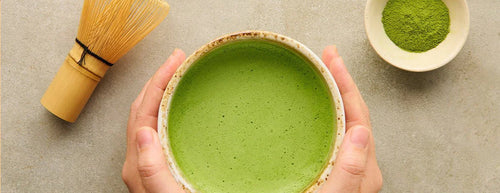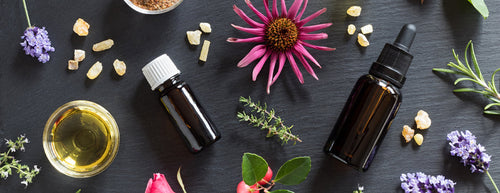A brief article about why it is normal to feel tired after having COVID-19 or the vaccination for COVID-19, and how antioxidants can play a role in your recovery.
To explain the rising awareness and popularity of using antioxidants for health reasons, I will first need to explain the relationship between antioxidants and free radicals.
Free radicals are oxygen containing molecules that we all have in our bodies to some extent - we often produce them as we age, and in response to illness. Outside factors such as pollution or eating unhealthy foods can also contribute to free radicals in the body. The main problem with free radicals is that they are unstable because they contain an uneven number of electrons. This makes them very reactive, and the way they react can often cause chemical reactions, resulting in imbalances in the body.
When a person has quite a lot of these reactions occurring in the body for a sustained period, in the world of alternative medicine, we call this oxidative stress. Oxidative stress is thought to contribute to illnesses like high blood pressure, pain and inflammation and even more serious conditions like diabetes and Alzheimer’s disease.
Oxidative stress in the short term is when a person has more free radicals than usual due to a viral infection such as COVID-19, or after they have received the vaccination. The vaccination creates an immune response similar to if you have had the virus - that is how it works, and that is why many people feel tired after receiving it.
Note:
If you do feel tired after the vaccination, this could be considered a good thing - your body has received a message about a virus and your immune system is responding. The tiredness is caused by the free radical activity created by the immune reaction.
So where do antioxidants come into play?
Antioxidants bind onto and neutralize free radicals, rendering them harmless. All living things need a certain level of antioxidants to prevent damage to cells - immune cells in particular and if we eat a healthy diet, we can get the majority of antioxidants needed from the foods we eat. Foods which are high in antioxidants are typically brightly coloured fruits and veg. Things like red grapes, beetroot, mangos, and peppers.
Most of us are aware that eating a diet high in these antioxidant type foods will benefit our health. As outlined earlier, antioxidant foods eaten consistently can reduce the risk of long-term and serious illnesses like high blood pressure, heart disease, and non-specific illnesses like joint pain and inflammation - a lot of the illnesses many people consider inevitable as we age. This is why antioxidants and supplements containing high levels of antioxidants are sometimes dubbed ‘anti-aging’. Because they can help to negate some of the negative effects of oxidative stress, which is a part of the ageing process.
In the case of COVID-19, an antioxidant diet has potential to reduce the tiredness after having the illness, or the tiredness after receiving the vaccination. Many people are doing the best they can with their diets whilst supplementing with antioxidant nutrients as well, as supplementation ensures extra antioxidant protection if you feel that your diet could be better.
Let’s outline the most popular antioxidant supplements that people are using in response to the COVID-19 virus and vaccination.
Pine bark/Pycnogenol.
Pycnogenol is a trademarked name for pine bark needles. Sailors in the 1500s found that drinking pine needle tea helped them survive scurvy. It is often used for its benefits for skin as it is thought to be protective against UV rays - a sure sign of an antioxidant nutrient!
Studies into pine bark extract have shown that it has cardio-protective properties and can help support the strength and integrity of the veins - making it a popular choice for those wanting to improve varicose veins.
In recent times, people have been taking pine bark extract because it is thought to contain an enzyme which can help to break down the residue left by the spike protein associated with vaccination, therefore reducing the chances of feeling extreme tiredness after receiving the vaccine.
Co-Enzyme-Q-10.
Co-Enzyme-Q-10 is also known by the name ubiquinol because it is ubiquitous - it is in every cell of our bodies. It is an antioxidant nutrient which is often taken for its energy production benefits. More often than not, humans are able to make their own Co-Enzyme-Q-10, but viral infections can cause a mutation in Co-Enzyme-Q-10 production, due to free radicals from the immune reaction. So, supplementing Co-Enzyme-Q-10 can radically reduce fatigue associated with infection and vaccination.It is often used very effectively by athletes, those who have a demanding schedule and people with circulation issues such as high cholesterol.
Quercetin.
Quercetin is associated with allergies such as hay fever. This is because, by taking quercetin, a hay fever sufferer can regulate and stabilize the cells that produce histamine in the body. When there is less histamine being produced, an allergy like hay fever will be less severe.
This action is very similar to those described above in the case of Pine Bark extract - Quercetin is an antioxidant that regulates our immune reaction by reducing the amount of free radicals being produced and stabilizing those free radicals, overall resulting in a reduction of fatigue and a quicker recovery.













